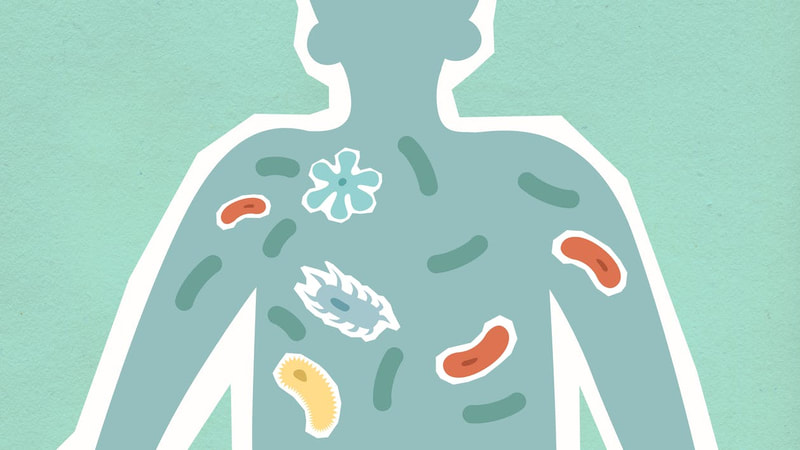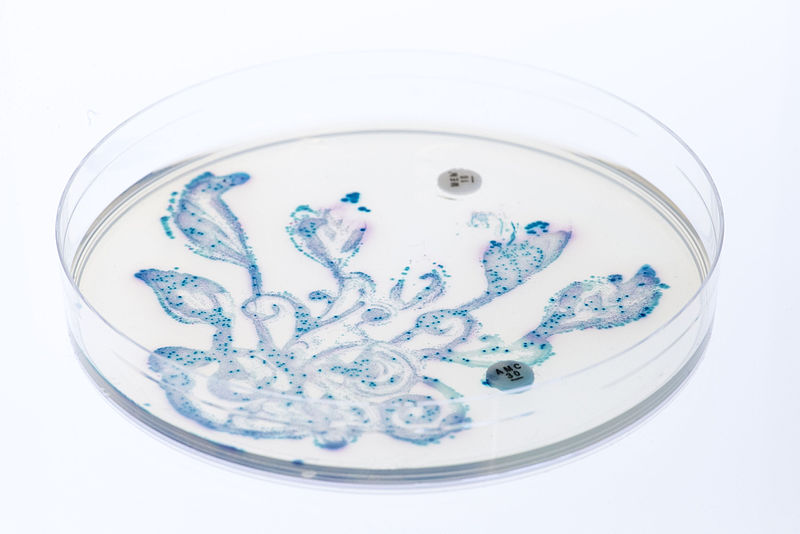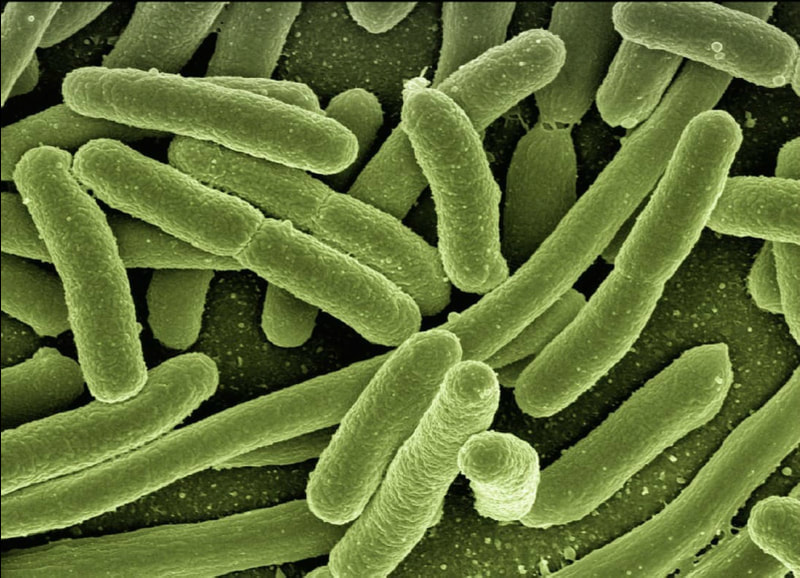Microbiome Remodeling: The Diet-Gut Microbiota Relationship
Within the human body, there are about ten times the amount of microbial cells than there are human cells. A large number of these microorganisms—around 100 trillion to be exact—make up the gut microbiota (GM), as they line the human gastrointestinal (GI) tract and regulate various metabolic processes. The diversity and richness of bacteria comprising the GM can even affect metabolic efficiency, with greater diversity and abundance of “good” bacteria often indicating a healthier GI tract.
It has been proven that dietary patterns have an extensive impact on the composition of bacteria in the GM. A review published in April 2020 evaluates the diet-microbiota relationship and its effect on human metabolism. The idea that the composition of the GM depends on an individual’s nutritional intake suggests that the GM can be engineered by changing one’s diet to increase metabolic efficiency. Even short-term dietary shifts—as little as a few days—have reportedly altered the bacteria in the GM, thus affecting metabolism.
The macronutrients and micronutrients in an individual’s diet determine the make-up of the GM, which can either support or disrupt one’s metabolism. Among all macronutrients, carbohydrates play the most pivotal role in shaping the GM. It has been observed that simple carbohydrates (sucrose and fructose) have rapid negative effects on GM composition and deregulate metabolism. By contrast, complex carbohydrates (fruits, vegetables, and whole grains) support bacterial diversity and richness in the GM, and subsequently, a healthy metabolism.
Studies on the effect of dietary lipids on the GM have mixed results. But generally, saturated fatty acids decrease GM diversity and promote the growth of harmful bacteria. Conversely, some studies observed that healthy fats have beneficial effects on the GM.
Additionally, the majority of studies concluded that there is a positive correlation between protein intake and microbial diversity in the gut. However, it should be noted that there is a significant difference between the diversity of bacteria produced by animal proteins versus plant-based proteins. Relatively, plant-based proteins are more favorable and lead to healthier GM.
It has been proven that dietary patterns have an extensive impact on the composition of bacteria in the GM. A review published in April 2020 evaluates the diet-microbiota relationship and its effect on human metabolism. The idea that the composition of the GM depends on an individual’s nutritional intake suggests that the GM can be engineered by changing one’s diet to increase metabolic efficiency. Even short-term dietary shifts—as little as a few days—have reportedly altered the bacteria in the GM, thus affecting metabolism.
The macronutrients and micronutrients in an individual’s diet determine the make-up of the GM, which can either support or disrupt one’s metabolism. Among all macronutrients, carbohydrates play the most pivotal role in shaping the GM. It has been observed that simple carbohydrates (sucrose and fructose) have rapid negative effects on GM composition and deregulate metabolism. By contrast, complex carbohydrates (fruits, vegetables, and whole grains) support bacterial diversity and richness in the GM, and subsequently, a healthy metabolism.
Studies on the effect of dietary lipids on the GM have mixed results. But generally, saturated fatty acids decrease GM diversity and promote the growth of harmful bacteria. Conversely, some studies observed that healthy fats have beneficial effects on the GM.
Additionally, the majority of studies concluded that there is a positive correlation between protein intake and microbial diversity in the gut. However, it should be noted that there is a significant difference between the diversity of bacteria produced by animal proteins versus plant-based proteins. Relatively, plant-based proteins are more favorable and lead to healthier GM.
Image Source: Monstera
Lastly, other dietary components like polyphenols (micronutrients derived from fruits, vegetables, tea, etc.) and probiotics (found in fermented foods such as yogurt) increase the abundance of good bacteria in the gut and support healthy digestion.
While each macronutrient and micronutrient component in one’s diet can have specific effects on gut bacteria, it is the interaction between them that ultimately determines the final diet-GM relationship. Thus, it is important to investigate how comprehensive dietary patterns shape the GM. The aforementioned review explored three well-defined diet types: a vegetarian/vegan diet, Mediterranean diet, and Western-style diet. Results showed that vegetarian/vegan and MD diets were the most effective in promoting optimal bacterial population and healthy GM. Specifically, a Mediterranean diet, characterized by polyphenol-rich foods as well as little processed meats and sugars, has been reported to improve the composition of the GM and metabolism. On the other hand, a Western-style diet, which is high in processed meats, salts, and sugars, was found to have adverse effects on the GM, leading to metabolic disorders and cardiovascular diseases.
A healthy metabolism can be beneficial for weight loss, nutrient intake, mood, sleep, and a variety of other bodily functions. With metabolism heavily intertwined with the GM, directly modifying the composition of the GM could enhance metabolism and overall health. A diet that includes adequate fruit and vegetable consumption, healthy fats, and plant-based proteins, has been proven most optimal for cultivating a healthy GM. While one’s diet can and should be flexible, lifestyle choices that take the health of the GM into consideration can lead to a happier gut and a happier you.
While each macronutrient and micronutrient component in one’s diet can have specific effects on gut bacteria, it is the interaction between them that ultimately determines the final diet-GM relationship. Thus, it is important to investigate how comprehensive dietary patterns shape the GM. The aforementioned review explored three well-defined diet types: a vegetarian/vegan diet, Mediterranean diet, and Western-style diet. Results showed that vegetarian/vegan and MD diets were the most effective in promoting optimal bacterial population and healthy GM. Specifically, a Mediterranean diet, characterized by polyphenol-rich foods as well as little processed meats and sugars, has been reported to improve the composition of the GM and metabolism. On the other hand, a Western-style diet, which is high in processed meats, salts, and sugars, was found to have adverse effects on the GM, leading to metabolic disorders and cardiovascular diseases.
A healthy metabolism can be beneficial for weight loss, nutrient intake, mood, sleep, and a variety of other bodily functions. With metabolism heavily intertwined with the GM, directly modifying the composition of the GM could enhance metabolism and overall health. A diet that includes adequate fruit and vegetable consumption, healthy fats, and plant-based proteins, has been proven most optimal for cultivating a healthy GM. While one’s diet can and should be flexible, lifestyle choices that take the health of the GM into consideration can lead to a happier gut and a happier you.
Featured Image Source: Monstera
RELATED ARTICLES
|
Vertical Divider
|
Vertical Divider
|
Vertical Divider
|






